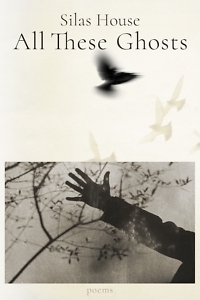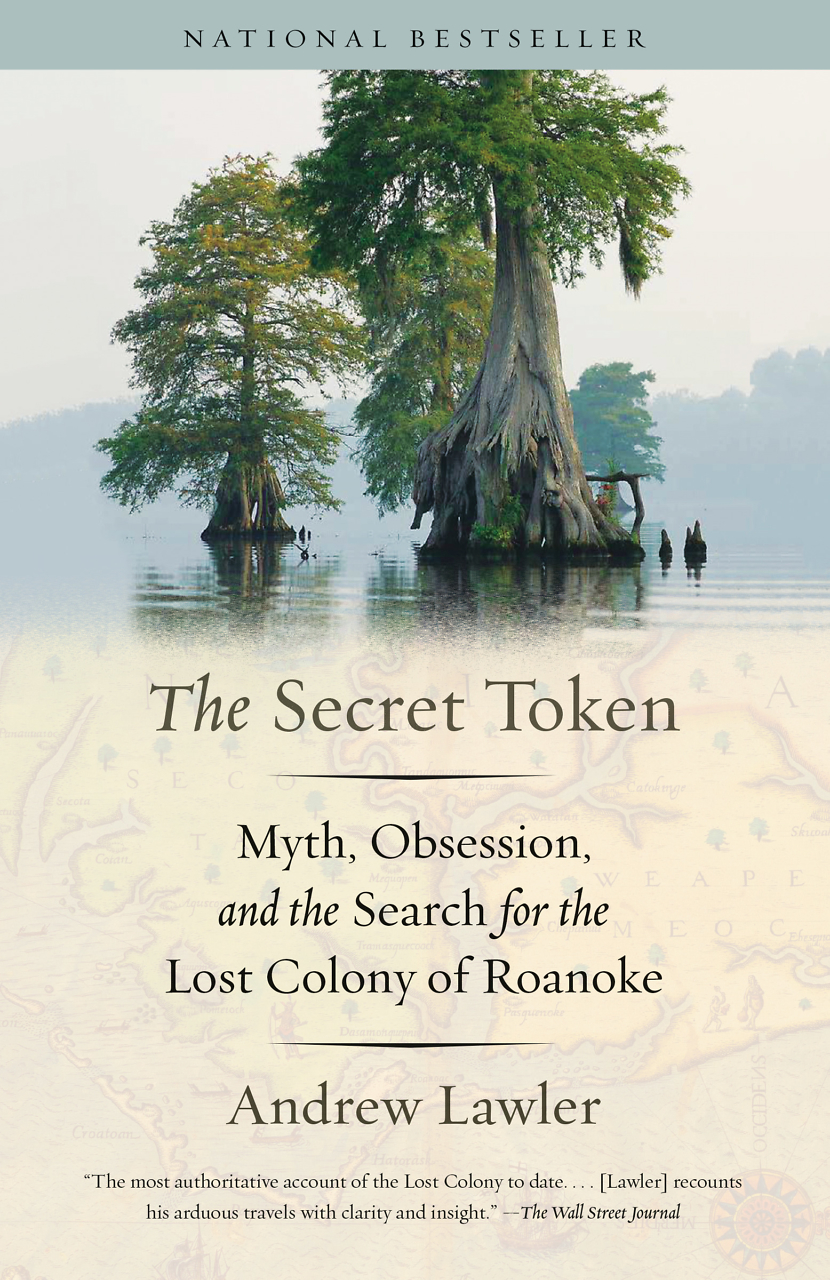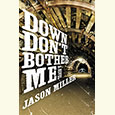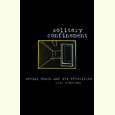Poems for the Timesick
In All These Ghosts, former Kentucky poet laureate Silas House reckons with his home state’s past and present
A brief poem called “Lost Place” appears as the prologue to All These Ghosts, the first full-length poetry collection from former Kentucky poet laureate Silas House. This poem’s speaker approaches the past with a sense of mystery but also insists that this present moment in time be understood.

“I recall the wild places, fecund, rich. / I wade into the creek, diaphanous / myself, am I haint or witch?” the speaker wonders. But then he focuses our attention toward what’s at stake: “Now, this is the land of the beguiled, / I see it before me so plain, / the little paths I trod as a child / and will never mark again.”
By turns plaintive and exhilarating, All These Ghosts conjures an attentive, nuanced reckoning with what it means to call a place our home ground. In House’s case, that home is Kentucky, but these poems offer deep insight into both personal memories and larger-scale communal dangers and hopes, resonating far beyond House’s specific origins and settings.
Before beginning his tenure as poet laureate in 2023, House had already built a body of work that commands a considerable degree of respect and admiration among writers in Appalachia. A trilogy of early novels established his insightful perspective on his Kentucky roots and his facility as a literary stylist. More recent novels, 2018’s Southernmost and 2022’s Lark Ascending, take on the darker ideological turns that have battered so many communities, big or small, across our nation.
House has demonstrated notable commitment to speaking out directly about the particular threats faced by Appalachia. For example, in 2009 he co-edited Something’s Rising: Appalachians Fighting Mountaintop Removal with his husband, Jason Kyle Howard. This oral history chronicles the fight against destructive mining practices in the region. Between his literary acumen and his activism, House has become a leading voice in Appalachian letters, as evidenced by a revealing collection of essays about his body of work, published in 2021.
All These Ghosts includes works House composed as poet laureate, marking crucial moments in recent Kentucky history. “Those Who Carry Us” was written for the second inauguration of Kentucky Governor Andy Beshear. This hopeful poem highlights those who serve the common good, especially during darker times, and the interdependence all citizens must embrace to take care of one another.
 A chilling long poem, “Behold This Dreamer,” explores a near-fatal attack on a gay Kentucky man in 2011 that led to the first hate crime prosecution in the nation. “Rivers” addresses the unjust killing of Breonna Taylor by Louisville police and attempts to grapple with contradictory aspects of the speaker’s ties to home: “O Kentucky: you hurt me and you heal me. / You cut me and you stitch me.”
A chilling long poem, “Behold This Dreamer,” explores a near-fatal attack on a gay Kentucky man in 2011 that led to the first hate crime prosecution in the nation. “Rivers” addresses the unjust killing of Breonna Taylor by Louisville police and attempts to grapple with contradictory aspects of the speaker’s ties to home: “O Kentucky: you hurt me and you heal me. / You cut me and you stitch me.”
In poems like these, House expands his vision, providing a lens through which to explore memory and grief as aspects of communal life, not just personal experience. Yet House always retains sensitivity and attention to closely observed detail. No matter its subject, All These Ghosts exudes intimacy and embodied experience.
“North Fork,” for example, draws inspiration from the real-life story of Mae Amburgey, a 97-year-old woman who swam to safety from her flooded Kentucky house in 2022. The speaker of House’s poem follows an elderly woman through the catastrophic destruction of not only her house but her entire sense of home. As floodwaters surround her, drowning the community she had always known, she becomes “unmoored” from the present: “Because this place is no / more, her home is the past.”
The “ghosts” from the woman’s past guide her out of the wreckage of her house and into rushing water, where rescuers are calling out to her, working to save her from the current. But within this collision of past and present, a space of strange calm opens up inside her, and memories of a “peaceful river” offer solace.
In numerous poems, House illuminates moments of what he calls “timesickness,” a state of powerful dislocation from the present during which the past floods in, haunting the speaker in complex ways. These experiences may contain grief, but they are neither wholly painful nor simplistic expressions of treacly nostalgia.
In the poem called “Timesickness,” the speaker reflects on quiet childhood moments spent with his mother and aunt. Fishing on the banks of a manmade lake that submerged a whole community, these women “sometimes cried / without explaining why.” House notes, “The past was always shimmering / in their hard and soft faces.”
But more is happening within this scene. Among this intimate “trinity” of family members, the speaker senses: “[a] ghostly / circle of light, the ones who hovered / so near. Those who had passed / long before, but always anchored to us, / kept bright by the stories.”
“Cornbread” plumbs the speaker’s love of making cornbread, summoning memories of all those family members who made the recipe before him: “And here I am, too, timesick / once again.” Stirring up a complex mixture of memory, sensory detail, and story, inciting both comfort and grief. “This is the curse of who we are / as a people, always eating / our own history, tasting the past.”
All These Ghosts brilliantly navigates the tensions that exist within potent experiences in our lives. As current events continue to turn darker, finding ways to voice the complexity of the choices we face becomes even more crucial. Alongside poems that foreground the intense heartache of grief, House includes poems that celebrate the daily sustenance of love, friendship, and the wonders available in nature.
“Northern Lights,” which is dedicated to House’s husband, describes the shock of viewing the Northern Lights from a back porch in Kentucky. The extraordinary colors make “an undulating mystery / as abstract as the enigma that brings / two people into the same orbit.”
“Here we are, watching them, together,” the speaker says, “and we always will be, even when / we are nothing more than sky.” Such moments, House conveys, transcend our narrow sense of what now seems possible for our lives. While expressing deep concern for the future, these poems also insist on the necessity — and the sacredness — of our joy.

Emily Choate’s fiction and essays have appeared in Mississippi Review, storySouth, Shenandoah, The Florida Review, Rappahannock Review, Atticus Review, Tupelo Quarterly, and elsewhere. She holds an M.F.A. from Sarah Lawrence College, served as one of the founding editors of Peauxdunque Review, and lives near Nashville, where she’s working on a novel.


